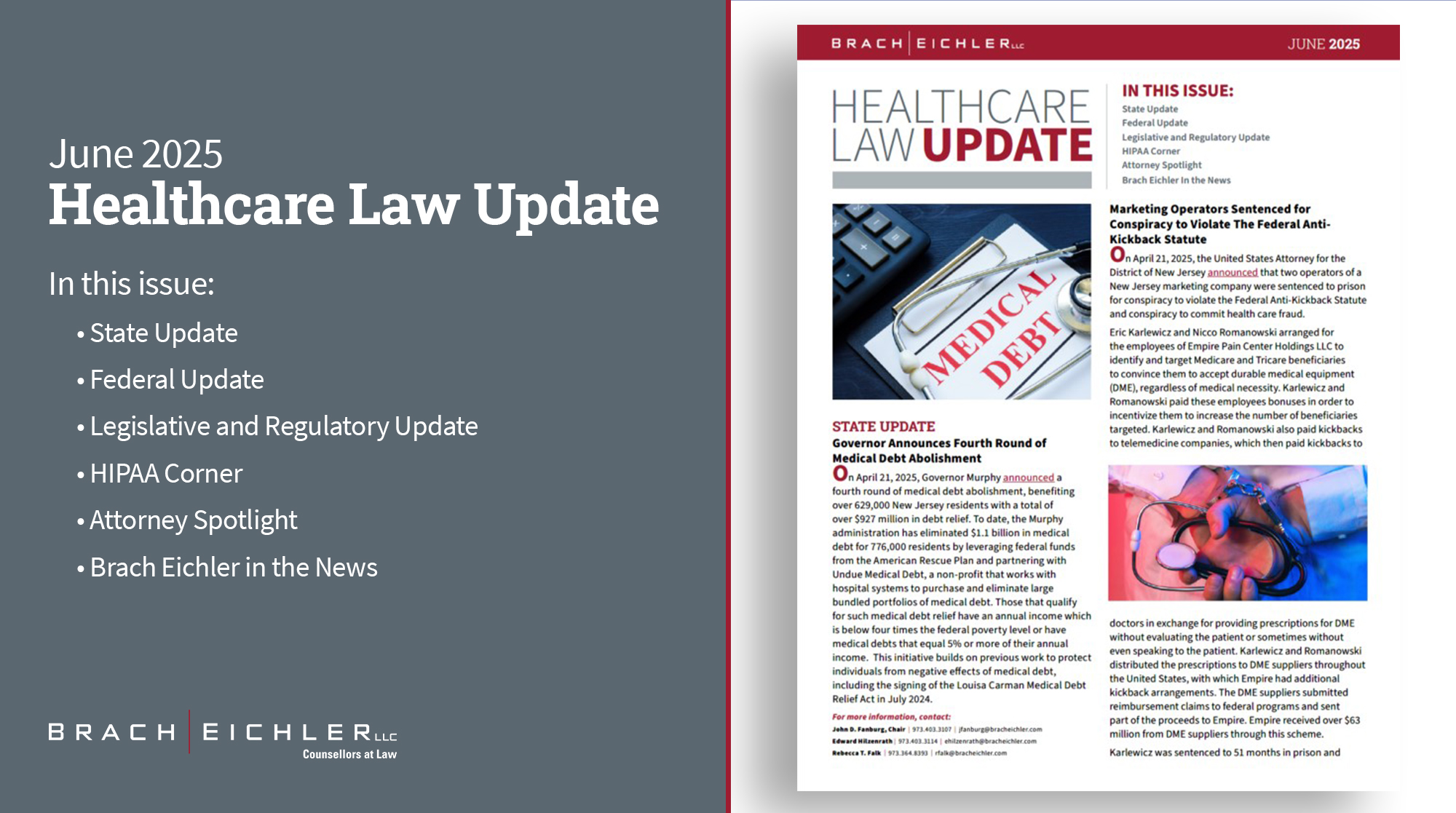
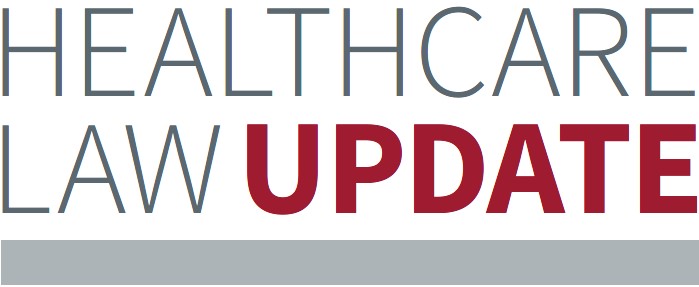

On April 21, 2025, Governor Murphy announced a fourth round of medical debt abolishment, benefiting over 629,000 New Jersey residents with a total of over $927 million in debt relief. To date, the Murphy administration has eliminated $1.1 billion in medical debt for 776,000 residents by leveraging federal funds from the American Rescue Plan and partnering with Undue Medical Debt, a non-profit that works with hospital systems to purchase and eliminate large bundled portfolios of medical debt. Those that qualify for such medical debt relief have an annual income which is below four times the federal poverty level or have medical debts that equal 5% or more of their annual income. This initiative builds on previous work to protect individuals from negative effects of medical debt, including the signing of the Louisa Carman Medical Debt Relief Act in July 2024.
For more information, contact:
John D. Fanburg, Chair | 973.403.3107 | jfanburg@bracheichler.com
Edward Hilzenrath | 973.403.3114 | ehilzenrath@bracheichler.com
Rebecca T. Falk | 973.364.8393 | rfalk@bracheichler.com
On April 21, 2025, the United States Attorney for the District of New Jersey announced that two operators of a New Jersey marketing company were sentenced to prison for conspiracy to violate the Federal Anti-Kickback Statute and conspiracy to commit health care fraud.
Eric Karlewicz and Nicco Romanowski arranged for the employees of Empire Pain Center Holdings LLC to identify and target Medicare and Tricare beneficiaries to convince them to accept durable medical equipment (DME), regardless of medical necessity. Karlewicz and Romanowski paid these employees bonuses in order to incentivize them to increase the number of beneficiaries targeted. Karlewicz and Romanowski also paid kickbacks to telemedicine companies, which then paid kickbacks to
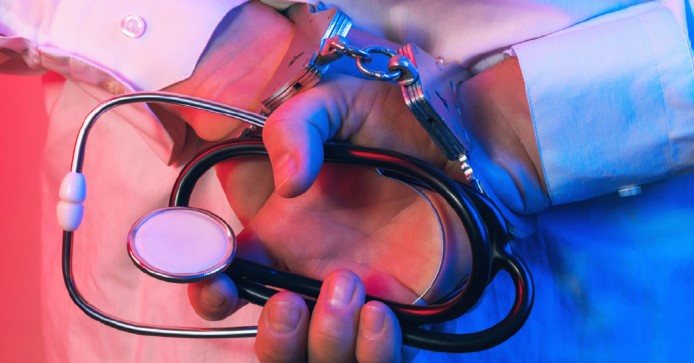
doctors in exchange for providing prescriptions for DME without evaluating the patient or sometimes without even speaking to the patient. Karlewicz and Romanowski distributed the prescriptions to DME suppliers throughout the United States, with which Empire had additional kickback arrangements. The DME suppliers submitted reimbursement claims to federal programs and sent part of the proceeds to Empire. Empire received over $63 million from DME suppliers through this scheme.
Karlewicz was sentenced to 51 months in prison and
ordered to forfeit over $63 million. Romanowski was sentenced to 80 months in prison and ordered to forfeit over $5.5 million. They were also ordered to pay $127.6 million in restitution. Karlewicz and Romanowski also settled related civil charges by admitting to violating the False Claims Act, agreeing to a $63.8 million consent judgment. The civil lawsuit was brought under the whistleblower provision of the False Claims Act. The whistleblower will receive a portion of the funds recovered by the United States.
For more information, contact:
Riza I. Dagli | 973.403.3103 | rdagli@bracheichler.com
Edward J. Yun | 973.364.5229 | eyun@bracheichler.com
Cynthia J. Liba | 973.403.3106 | cliba@bracheichler.com

On April 30, 2025, the U.S. Attorney’s Office for the District of New Jersey announced that Summit BHC New Jersey, LLC (Seabrook), a drug and alcohol rehabilitation facility in Cumberland County, agreed to a settlement to resolve allegations that Seabrook violated the False Claims Act (FCA). Seabrook was accused of submitting false claims to the Veterans Health Administration (VHA) and the New Jersey Medicaid program for services to veterans and low-income individuals that were either not rendered or for which Seabrook was not qualified to perform.
According to the U.S. Attorney, Seabrook mislead veterans into thinking they were receiving specialized care tailored to their needs, and then falsely billed at the full per diem rate for individual and group counseling sessions even when patients did not receive all of the services required to justify that rate. Additionally, Seabrook allegedly failed to meet state requirements for provider licensing and used interns for services that they were not qualified to provide. The U.S. Attorney also alleged that Seabrook
falsified patient records and hid its lack of services and wrongdoings from VHA inspectors.
Under the terms of the settlement, Seabrook agreed to pay a $19.75 million fine in exchange for its release under the FCA, the Civil Monetary Penalties Law, the Program Fraud Civil Remedies Act, and the New Jersey False Claims Act. Notably, the settlement does not release Seabrook from any criminal liability for these allegations. The settlement includes a $3.5 million payment to a relator, a former employee of Seabrook, under the whistleblower protections of the FCA.
For more information, contact:
Caroline Patterson | 973.364.5233 | cpatterson@bracheichler.com
Shannon Carroll | 973.403.3126 | scarroll@bracheichler.com
Rebecca T. Falk | 973.364.8393 | rfalk@bracheichler.com
The New Jersey Supreme Court recently heard oral arguments in a case brought by several New Jersey hospitals challenging the State’s charity rules, claiming requiring hospitals to provide charity care to indigent patients constitutes an unconstitutional taking by the State. The plaintiffs in Englewood Hospital and Medical Center v. New Jersey filed suit in June 2017 challenging the constitutionality of a New Jersey statute that provides that no hospital may deny any admission or appropriate service to a patient on the basis of that patient’s ability to pay or source of payment, and prescribes a $10,000 fine per violation for any hospital that violates the statute. A trial court initially found in favor of the State, and in June 2024, an appellate upheld the trial court’s decision.
The lawsuit, which was filed on behalf of several prominent New Jersey hospital systems, including Englewood Hospital and Hackensack Meridian Health, alleges that the State’s requirement to provide free charity care to individuals that are uninsured and who meet certain income and asset requirements constitutes an unconstitutional taking under the New Jersey and United States Constitutions. According to the plaintiffs, hospitals are partially reimbursed under the State’s Health Care Subsidy Fund, but the fund is not intended to provide full reimbursement of a hospital’s expenses in providing charity care, and the State’s failure to provide at-cost reimbursement constitutes a government taking as a result of the hospital equipment and facilities that are required to be used without full reimbursement. In
remarks at the closing of oral arguments, Chief Justice Rabner commented on the potentially wide-reaching consequences on other hospitals and the potential precedential impact of the court’s decision. A decision is expected later this year.
For more information, contact:
Lani M. Dornfeld, CHPC | 973.403.3136 | ldornfeld@bracheichler.com
Edward J. Yun | 973.364.5229 | eyun@bracheichler.com
Andrew Kuder | 973.403.3141 | akuder@bracheichler.com
On April 4, 2025, the U.S. Department of Health and Human Services, Office of Inspector General, (“OIG”) issued a favorable advisory opinion (Advisory Opinion No. 25-02) to a community health center funded by the Health Resources and Services Administration (the Health Center) in connection with a proposed outreach program arrangement. The Health Center receives funding to provide not only medical services, but also certain non-medical, social, and educational services that enable individuals to access health care and improve health outcomes (e.g., child care, food banks and meals, employment and education counseling, and legal services). Under the proposed arrangement, while receiving additional services, individuals would be asked if they have seen a primary care provider within the past year. If not, they would receive a list of local providers, including the Health Center. For those who choose the Health Center for primary care, an appointment would be scheduled; otherwise, the Health Center would facilitate an electronic referral to the chosen provider.
The OIG evaluated whether the arrangement would violate the Federal Anti-Kickback Statute (“AKS”) and the Beneficiary Inducements Civil Monetary Penalty statute. Although the arrangement would generate prohibited remuneration under these statutes, the OIG found that the following safeguards mitigated the risk for fraud and abuse:
• Outreach would be based on neutral criteria (e.g., not having seen a primary care provider within a year);
• The list of providers would include non-affiliated providers, be alphabetically ordered, and would not promote the Health Center;
• The Health Center would adopt an “any willing provider” policy for the referral list;
• Patients could receive additional services without being required to obtain care from the Health Center; and
• The arrangement aligns with the Health Center’s statutory mission to provide primary care services to underserved populations regardless of ability to pay.
As such, the OIG determined that it would not impose sanctions on the Health Center if it proceeds with the arrangement.
For more information, contact:
Carol Grelecki | 973.403.3140 | cgrelecki@bracheichler.com
Edward J. Yun | 973.364.5229 | eyun@bracheichler.com
Vanessa Coleman | 973.403.3106 | cliba@bracheichler.com
In a complaint filed on May 1, 2025, the Department of Justice accused insurance providers Aetna, Humana and Elevance Health of engaging in a large kickback scheme with insurance brokers eHealth, GoHealth, and SelectQuote between 2016 and 2021. According to the complaint, the brokers steered customers seeking assistance in selecting a Medicare Advantage plan to Aetna, Humana and Elevance Health in exchange for hundreds of millions of Dollars in kickbacks through payments for marketing, sponsorships and other similar services. Further, the complaint alleges that Aetna and Humana conspired with the insurance brokers to discriminate against Medicare beneficiaries with disabilities, which they perceived to be less profitable, by steering those patients to choose Medicare Advantage plans through other insurers. According to the Department of Justice, Aetna and Humana threatened that they would withhold kickbacks to these brokers to encourage them to enroll fewer beneficiaries with disabilities in their plans. The lawsuit is a qui tam action under the False Claims Act, which permits a private individual to bring a claim in the event of government fraud and allows the individual to collect a portion of the damages the government collects if it prevails in the lawsuit.
For more information, contact:
Joseph M. Gorrell | 973.403.3112 | jgorrell@bracheichler.com
Richard B. Robins | 973.447.9663 | rrobins@bracheichler.com
Andrew Kuder | 973.403.3141 | akuder@bracheichler.com
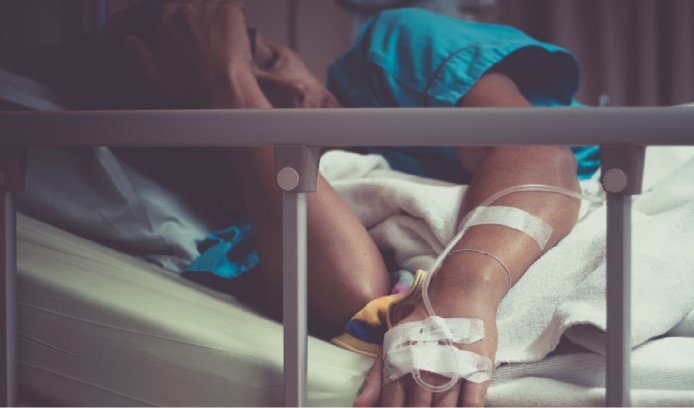
In a recent decision, the United States Supreme Court upheld the Department of Health and Human Services’ (HHS) interpretation of federal regulations regarding the calculation of Medicare payments for hospitals that serve a high percentage of low-income individuals. In Advocate Christ Medical Center v. Kennedy, more than 200 hospitals sued the federal government arguing that HHS’s definition of low-income patients left the hospitals underfunded from 2006 to 2009. In a decision authored by Justice Amy Coney Barrett writing for a 7-2 majority, the Supreme Court upheld HHS’ interpretation of the regulations.
At issue was the enhanced payment system under Medicare, which was designed to provide hospitals with an incentive to treat lower-income patients as a means to offset the disconnect between fixed rates and costs of care. The enhanced payment system provides an enhanced payment to hospitals that treat larger numbers of low-income patients. The regulations utilize the “Medicare Fraction,” which was at issue in the case, to measure “the hospital’s senior (or disabled) low-income population.” The Medicare Fraction uses Medicare patients’ entitlement to supplemental security income (SSI) as the determining factor for low-income status. The Medicare Fraction’s numerator includes patients entitled to Medicare Part A benefits and patients entitled to SSI benefits, while the denominator comprises the inpatient days of all Medicare patients.
The hospitals argued that a patient is “entitled to SSI benefits” if they are in the SSI system, even if they are not currently receiving SSI benefits. HHS interpreted “entitled to SSI benefits” to mean patients who received SSI cash payments during their hospital stays, which resulted in a lower “Medicare Fraction” numerator and thus
lower enhanced payments. The Supreme Court’s ruling upheld the decision of all lower courts that ruled in this case, and upheld how HHS has historically determined payments under the enhanced payment system. Justice Ketanji Brown Jackson dissented, joined by Justice Sonia Sotomayor, warning that the majority’s interpretation of the law at issue “will deprive hospitals serving the neediest among us of critical federal funds that Congress plainly attempted to provide.”
For more information, contact:
Keith J. Roberts | 973.364.5201 | kroberts@bracheichler.com
Jonathan J. Walzman | 973.403.3120 | jwalzman@bracheichler.com
Paul DeMartino, Jr. | 973.364.5228 | pdemartino@ bracheichler.com
Assembly Bill 5571, introduced in the New Jersey Assembly on April 10, 2025, would prohibit insurance carriers from conditioning the payment of a medical test, procedure or prescription drug on pre-approval or precertification, as long as the medical test, procedure, or prescription drug is otherwise covered under a health benefit or prescription drug benefits plan. If enacted, the Bill would apply to health insurers, third party administrators, pharmacy benefits managers, the State Health Benefits Program and the School Employees’ Health Benefits Program to ensure that patients who are ill are not burdened with technical requirements and can receive treatment as ordered by providers.
Assembly Bill 5542, introduced in the New Jersey Assembly on April 10, 2025, would require health insurance coverage of diagnostic breast examinations and supplemental breast examinations, without imposing cost-sharing obligations on patients. “Diagnostic breast examination” would be defined as a medically necessary and appropriate examination for breast cancer screening to evaluate an abnormality seen or suspected from an initial screening. “Supplemental breast examination” would be defined as a medically necessary and appropriate examination for breast cancer screening when no abnormality is initially seen or suspected, but is otherwise recommended based on an individual’s personal or family medical history, or other factors that
elevate their risk. The types of tests included in the Bill are contrast-enhanced mammography, breast magnetic resonance imaging, breast ultrasound, and molecular breast imaging.
The Equitable Drug Pricing and Patient Access Act, introduced in the New Jersey Assembly on April 10, 2025, would require the reimbursement rate for prescription drug services paid to a pharmacy providing prescription drug services to Medicaid beneficiaries to not be less than the national average drug acquisition cost of the drug plus a Medicaid fee-for-service professional dispensing fee of $10.92. If enacted, the Bill would apply to Medicaid fee-for-service and Medicaid managed care plans. Additionally, the Bill would mandate that all Medicaid managed care contracts include pharmacy choice as a benefit, so enrollees could choose any qualified pharmacy that is a contracting provider, and no qualified pharmacy would be denied the right to become a contracting provider under the same terms and conditions as existing contracting pharmacies, as long as the pharmacy accepts the contract’s terms.
The Midwifery Licensing Act, introduced in the New Jersey Assembly on April 10, 2025, would establish a new regulatory body, the Board of Midwifery, tasked with overseeing the licensure and regulation of certified midwives (CMs), certified nurse midwives (CNMs), and certified professional midwives (CPMs). Currently, these practitioners fall under the jurisdiction of the Board of Medical Examiners. If enacted, the bill would expand the scope of practice for CMs and CNMs, allowing them to prescribe, order, dispense, and administer drugs and medical devices, including controlled dangerous substances, consistent with their education and certification, and in compliance with applicable law.
Assembly Bill 4163, signed into law on April 23, 2025, requires health insurers to cover biomarker testing for the purposes of diagnosis, treatment, appropriate management, or ongoing monitoring of an individual’s disease or condition. Biomarker testing analyzes an individual’s biological indicators to provide insights into
their health status or risk of certain diseases. Under the law, health insurers must cover the testing as long as it is supported by medical and scientific evidence. The legislation aims to eliminate uncertainty around insurance coverage and to reduce high out-of-pocket costs for such testing.
On May 5, 2025, the New Jersey State Board of Medical Examiners implemented changes to the Continuing Medical Education (CME) requirements for physicians and podiatrists, commencing with the biennial renewal period beginning on July 1, 2025, and one change to the continuing education requirements for physician assistants, commencing with the biennial renewal period beginning on May 5, 2026.
1. Physicians will be required to have at least two CME credits relating to sexual misconduct prevention. Such training is required to include information about how to interact with patients who have been sexually abused or harassed, understanding the power dynamics that contribute to sexual misconduct in the health care field, and effective methods of identifying human trafficking.
2. Physicians who provide perinatal treatment and care to pregnant persons will be required to have at least one CME credit of evidence-based training in explicit and implicit bias. Such training is required to include identification of previous and current unconscious biases and misinformation when providing perinatal treatment and corrective measures to decrease explicit and implicit bias at the interpersonal and institutional levels.
3. Physician assistants who provide perinatal treatment and care to pregnant persons will be required to have at least one continuing education credit of evidence-based training in explicit and implicit bias. Such training is required to include identification of previous and current unconscious biases and misinformation when providing perinatal treatment and corrective measures to decrease explicit and implicit bias at the interpersonal and institutional levels.
On May 5, 2025, the New Jersey State Board of Medical Examiners (BME) revised the April 2024 Proposed Amendment relating to patients’ rights to have an
observer present during breast, pelvic, genitalia, and rectal examinations. In the Proposed Amendment, the BME seeks to require practitioners to provide a written form regarding the right to an observer, the right to decline having an observer, and the right to decline care in the absence of an observer. Practitioners would be required to give the notice to each patient for written acknowledgement and post a copy in their office and on their website.
Based on the comments submitted, the BME made substantial changes to the Proposed Amendment. Specifically, the BME added training requirements for observers, a requirement that observers maintain a clear line of sight to the examination, and a requirement that observer report any suspected misconduct to the BME. The BME also now proposes to exclude the written notice requirement if there is substantial risk that a delay in care caused by providing notice would result in harm to the patient.
Additional comments on the revised proposed amendment must be submitted by July 4, 2025 and may be submitted online at https://www.njconsumeraffairs.gov/Proposals
/Pages/default.aspx.
For more information, contact:
John D. Fanburg, Chair | 973.403.3107 | jfanburg@bracheichler.com
Edward Hilzenrath | 973.403.3114 | ehilzenrath@bracheichler.com
Rebecca T. Falk | 973.364.8393 | rfalk@bracheichler.com
The U.S. Department of Health and Human Services (DHHS) recently entered into a Resolution Agreement with an imaging provider relating to the breach of a picture and archiving communications system (PACS) server containing medical images of its patients. The investigation of the provider was initiated by the DHHS Office for Civil Rights (OCR) after OCR obtained information alleging that protected health information maintained or stored by the provider was accessible via the internet and disclosed as the result of an unsecure PACS server. Per the Resolution Agreement, the investigation revealed that the provider “never conducted an accurate and thorough assessment of the potential risks and vulnerabilities to the confidentiality, integrity, and availability of the electronic protected
health information that it holds,” as required by the HIPAA Security Rule, and the provider “failed to notify affected individuals of a breach within 60 days of discovery of the breach,” as required by the HIPAA Breach Notification Rule.
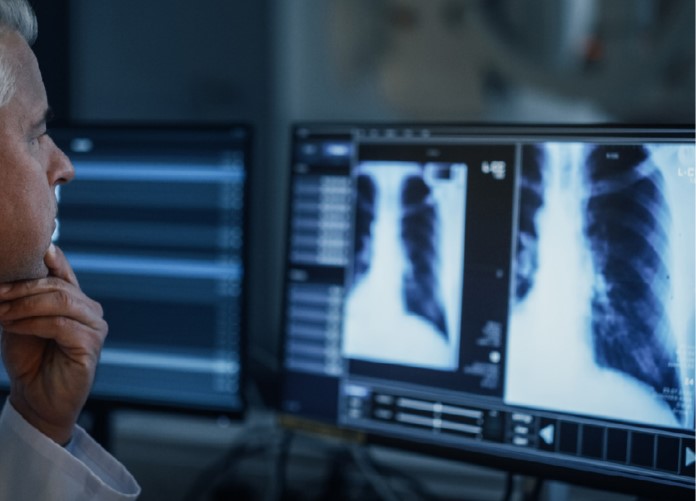
Although the penalty of $25,000 assessed by DHHS is relatively low, the Resolution Agreement contains a number of corrective action obligations the provider must undertake, including, but not limited to, (i) sending breach notification to the affected individuals, the media and DHHS; (ii) conducting a complete and accurate risk assessment of the provider’s systems, with the scope and methodology of such risk assessment pre-approved by DHHS; (iii) conducting annual risk assessments; (iv)
developing risk management plans based on the results of the risk assessments; (v) developing and revising the provider’s HIPAA policies and procedures and submitting them to DHHS for review and approval; (vi) distributing the final policies and procedures to the provider’s workforce and obtaining compliance certifications; (vii) training workforce members; and (viii) submitting an implementation report and annual reports to DHHS during the corrective action period.
The resolution of this breach event demonstrates that, although there is a financial and human resources cost to proper and full implementation of the requirements of HIPAA, the cost of a breach event, even one with a low monetary penalty, can be extremely high.
For more information or assistance with your organization’s privacy and security program, contact:
Lani M. Dornfeld, CHPC | 973.403.3136 | ldornfeld@bracheichler.com
Get to know the faces and stories of the people behind the articles in each issue. This month, we invite you to meet Member and Healthcare Law Vice Chair Caroline J. Patterson and Associate Vanessa Coleman.
In your opinion, what is the most pressing legal issue currently facing the healthcare industry?
One of the most pressing legal challenges currently facing the healthcare industry is the rapid expansion of telehealth and digital health technologies. While these innovations offer significant benefits, it is imperative that healthcare providers exercise heightened diligence in evaluating and managing the associated risks—particularly in the areas of billing compliance, regulatory requirements, and malpractice liability.
What personal qualities or skills do you think are most important for a healthcare attorney to cultivate, both professionally and personally?
As a healthcare attorney, cultivating a growth mindset is essential. Healthcare law is inherently complex, highly nuanced, and continuously evolving. As such, even the most experienced practitioners must remain open to ongoing learning, professional development, and collaboration with colleagues. Embracing this mindset enables attorneys to navigate the intricate legal issues they encounter daily with thoughtfulness, adaptability, and practical insight.
In your opinion, what is the most pressing legal issue currently facing the healthcare industry?
One of the most pressing legal issues currently facing the healthcare industry is data privacy and security, especially compliance with laws like HIPAA in the face of increasing cyberattacks on healthcare systems.
What personal qualities or skills do you think are most important for a healthcare attorney to cultivate, both professionally and personally?
Strong communication, attention to detail, and sound judgment are essential for a healthcare attorney. Personally, empathy and integrity are just as important to understand and support clients in a complex field. These qualities help build trust with clients and ensure thoughtful, ethical advocacy in navigating healthcare’s regulatory landscape.

Brach Eichler’s Healthcare Law practice is pleased to announce Caroline J. Patterson, Healthcare Law Vice Chair and Member, has joined the firm. Welcome back to the firm Caroline! On May 2, ROI-NJ announced Caroline J. Patterson’s return to Brach Eichler as Vice Chair of Health Law department.
On May 22, Healthcare Law Member Lani Dornfeld and Brach Eichler was proud to be an event sponsor for the Home Care Association of Florida (HCAF) “Spring 2025 Home Care Connection Series.”
On May 20, Joseph M. Gorrell, Healthcare Law Member, was honored with an NJBIZ “2025 ICON Award” list for his distinguished career in Healthcare Law.
On May 16, ROI-NJ announced the appointment of Healthcare Law Member Keith J. Roberts to the Saint James Health Board of Directors.
On May 13, Managing Member and Healthcare Law Chair John D. Fanburg and Healthcare Law Member Keith J. Roberts spoke at this year’s New Jersey Association of Ambulatory Surgery Centers (NJAASC) conference. Keith J. Roberts presented how AI is reshaping the future of medicine, and John D. Fanburg provided a legal and legislative update for ASCs.
On May 9, Managing Member and Healthcare Law Chair John D. Fanburg opined in HealthcareDive article entitled “Medicaid cuts could have ‘drastic impact’ on providers” about what the cuts could mean for hospitals and providers who serve higher numbers of Medicaid patients.
On May 9, Managing Member and Healthcare Law Chair John D. Fanburg presented at the NJOGS 73rd Annual Meeting. He joined lobbyist Laurie Clark for a session on navigating New Jersey’s healthcare legal and regulatory landscape.

Attorney Advertising: This publication is designed to provide Brach Eichler LLC clients and
contacts with information they can use to more effectively manage their businesses. The contents
of this publication are for informational purposes only. Neither this publication nor the lawyers who
authored it are rendering legal or other professional advice or opinions on specific facts or matters.
Brach Eichler LLC assumes no liability in connection with the use of this publication.

Riza I. Dagli | 973.403.3103 | rdagli@bracheichler.com
Lani M. Dornfeld | 973.403.3136 | ldornfeld@bracheichler.com
John D. Fanburg, Chair | 973.403.3107 | jfanburg@bracheichler.com
Joseph A. Ferino | 973.364.8351 | jferino@bracheichler.com
Joseph M. Gorrell | 973.403.3112 | jgorrell@bracheichler.com
Carol Grelecki | 973.403.3140 | cgrelecki@bracheichler.com
Caroline Patterson | 973.364.5233 | cpatterson@bracheichler.com
Keith J. Roberts | 973.364.5201 | kroberts@bracheichler.com
Richard B. Robins | 973.447.9663 | rrobins@bracheichler.com
Jonathan J. Walzman | 973.403.3120 | jwalzman@bracheichler.com
Edward J. Yun | 973.364.5229 | eyun@bracheichler.com
Edward Ellersick | 973.364.5205 | eellersick@bracheichler.com
Debra W. Levine | 973.403.3142 | dlevine@bracheichler.com
Erika R. Marshall | 973.364.5236 | emarshall@bracheichler.com
Tracy Miller | 973.403.3102 | tmiller@bracheichler.com
Rebecca T. Falk | 973.364.8393 | rfalk@bracheichler.com
Roseland, NJ | New York, NY | West Palm Beach, FL | www.bracheichler.com | 973.228.5700


